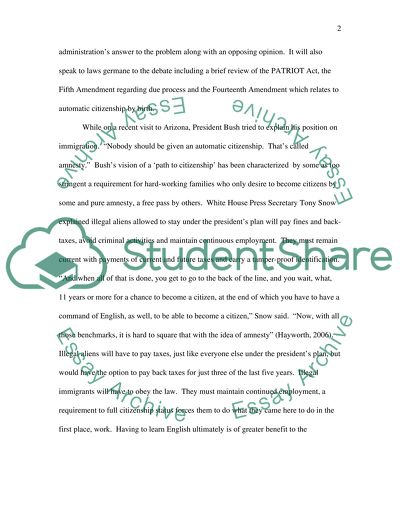Cite this document
(“Immigration Debate Essay Example | Topics and Well Written Essays - 2250 words”, n.d.)
Retrieved de https://studentshare.org/politics/1540952-immigration-debate
Retrieved de https://studentshare.org/politics/1540952-immigration-debate
(Immigration Debate Essay Example | Topics and Well Written Essays - 2250 Words)
https://studentshare.org/politics/1540952-immigration-debate.
https://studentshare.org/politics/1540952-immigration-debate.
“Immigration Debate Essay Example | Topics and Well Written Essays - 2250 Words”, n.d. https://studentshare.org/politics/1540952-immigration-debate.


